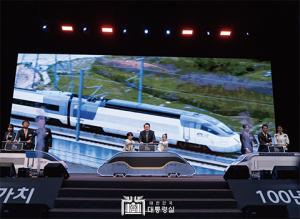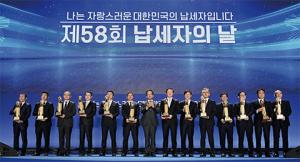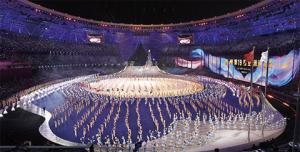전통문화의 정신과 예절을 계승하는 대표적인 지방교육시설
국내 최대 규모의 선비학당

‘항교’는 고려ㆍ조선시대의 지방 교육기관으로 교궁(校宮)ㆍ재궁(齋宮)이라고도 한다. 조선시대 국립고등교육기관이었던 향교는 인본주의 윤리를 가르쳐 사람다운 인간의 도리를 깨우쳐 주는 곳이다. 이에 향교에는 교육을 통해 사람의 품성을 훈육해 수신제가하고 효제충신(孝悌忠信) 치국평천하의 이념을 사회에 교화시키는, 우리나라를 발전시킨 원동력의 상징이라고 할 수 있다. 조선시대 후기 유학이나 유교가 쇠퇴하고 항교의 기능은 점점 쇠퇴하게 되었다, 그리고 현대에 와서 급격하게 발전하는 사회속에서 전통문화 계승을 위해 명맥을 유지하고 있다. 전국 2백여개의 향교들 가운데 전통문화를 모범적으로 계승하고 시범항교로 4번이나 지정이 된 항교가 있어 파워코리아가 집중 취재하였다. 청주항교가 바로 그곳이다.
전국항교중 시범항교로 모범을 보이고 있는 청주항교
현재 충북 청주 항교 책임자는 올해 80세인데도 노익장을 과시하고 있는 이종한(李種漢)전교(典校). 이 전교는 덕수이가의 자손으로 선비 율곡 이이 의 12대 손이다. 이 전교는 청주향교를 한국 제일의 향교로 운영하기 위해 전교 취임이후 동분서주하고 있는 가운데 현재 청주향교에서 진행하고 있는 연중행사와 주요 업무는 2011년 4월부터 『전통문화진흥사업』의 일환으로 1년과정으로 운영되는 유교대학, 연간 2회(봄,가을) 실시하는 대제인 석전행사를 비롯해 삭망봉심, 서예교실과 한문교실, 청소년들을 대상으로 하는 충효교실, 충효 백일장 및 전국 한시 백일장, 도의선양 강연회 개최, 예절 및 의례 상담실 운영, 장학회와 전국항교중 유일하게 운영하는 『어린이집 운영』, 경로식당을 통해서 지역노인들에게 매일 무료급식 운영, 선비문화를 체험하도록 하는 선비학당, 전통혼례장 운영 등 다채로운 활동을 펴고 있어 시범항교로서의 역할을 충실히 수행하고 있다.
올바른 인성과 예절교육을 강화해 현대 교육의 문제점을 바로 잡을수 있어
공자 말씀에 부모를 공경하면 자식으로부터 공경을 받고, 부모 말씀을 잘 들으면 부모 말을 잘 듣는 자식이 있게 된다. 지붕 처마 밑에서 떨어지는 물은 그대로 직선으로 떨어지듯이 부모가 한 만큼 받는 것 이라 했다. 이종한 전교가 생각하는 현대교육의 문제는 첫 번째로는 한 자식만 낳아 기르는 부모들이 많아진 부분을 애기했다. 어려운 경제환경과 여러 가지 문제로 인해 한자녀만 낳아 기르는 부모들이 많아졌다. 그 자녀들은 기본적으로 귀하게 자라는 만큼 50년전과 비교하면 여러 형제들과 경쟁해야만 하는 세대들에 비해 경쟁력과 생존력이 떨어질 수 밖에 없다는 것이다. 또한 급격하게 사회가 단기간에 크게 발전을 하면서 인성과 윤리에 대한 교육은 소홀해 지고 있다. 이종한 전교는 때문에 많은 자녀들에게 한문 배우기를 원했다. 단순히 한문을 또 하나의 외국어로 보는것이 아니라 한문을 배움으로서 옛 성인들의 말씀을 통해 그 정신과 인품을 배울수 있다는 것이다. 최종적으로 올바른 인성을 성립하고 함께사는 사회의 일원으로서 국가에 이바지 할 수 있다는 것이다.
청념·결백 한 학구적인 인재가 되야
이종한 전교는 오랫동안 교직에 몸담아 있었고 퇴직후에 항교에서 일을 하게 되었다.
그래서 그런지 그가 생각하는 인재는 기본적으로 청념하고 결백하며 열심히 공부하는 사람을 인재상으로 꼽았다. 그는 “능력이라는 것이 결국엔 엄청난 노력의 결실이고 아무리 유능해도 청념하고 결백하지 못하면 주위사람들에게 해가 되고 사회의 악이 되며 나라를 망치게 만들게 된다” 고 했다. 때문에 현대사회는 청주항교 같은 역할을 하는곳에서 많은 사람들이 배우고 실천해야 한다고 말이다.
‘온고지신’ 을 통해 창조경제 맞는 인재를 양성하고 싶어.
‘옛것이 있어야 오늘날의 현실이 있다.’ 는 사자성어가 있다. 점점 더 옛것을 지킬생각을 하지 않는 현대인들에게 꼭 필요한 말이다. 현재 청주향교는 전통문화를 체험하기 좋은 시설과 프로그램들이 많이 있다. 예컨대 매년 4천명 정도가 체험하는 선비학당 ‘선비문화체험’은 많은 인원이 참여하는 만큼 반응또한 상당히 좋다. 또 전통혼례는 최근 특별한 결혼을 원하는 예비부부 들에게 다양한 볼거리와 품격있는 식진행을 통해서 평생 잊혀지지 않는 추억거리로 남게된다. 이 전교가 우리에게 주는 메시지는 간단했다. 지식만 넣어주는 것이 아닌 청소년들이나 일반인들의 인성을 바로잡아 줄 수 있는 인성교육을 중심으로 청주항교를 운영 할 것이며, 이렇게 함으로써 지역의 자식들과 아이들에게 인성교육을 하고 나아가서는 지역뿐만 아니라 많은사람들이 전통문화를 체험함으로써 옛 성인들의 옳은 정신을 배워 어질고, 현명한 사람들이 이끄는 대한민국을 원했다.
점점 혼탁해지는 사회질서 속에서 우리에게 바른 인성과 윤리를 심어주고 지역사회의 기둥으로써 역할을 다하고 있는 청주항교의 바른 정신에서 우리사회가 나아갈 길을 보게 될 것이다.
Representative Rural Education Facility that inherits the mind and courtesy of traditional culture
Domestic's largest scale classical scholar school Chungbuk Cheongju HyangGyo missionary JongHan Lee
The 'HyangGyo' is also called as Gyogoong·Jaegoong as rural education institution of Goryeo·Joseon dynasty. HeyangGyo as Joseon dynasty's national higher education institution was a place that enlightened the duty of human like people by teaching the ethic of humanism. Therefore, HyangGyo could be called as symbol of impetus that developed South Korea, it trains moral and home management by disciplining the nature of human and reforms the society with ideology of brotherly love with loyalty, serene and well governing though education. Later in the Joseon dynasty the confucianism had declined and HyangGyo had slowly lost it's function, and in fast developing modern days succeed the traditional culture in the society it maintains the existence. There is a HyangGyo that exemplary succeeded the traditional culture out of two hundred HyangGyos and was nominated as exemplary HyangGyo four times so Power Korea went out for intensive coverage, and that is the Cheongju HyangGyo.
By strengthening proper characteristics and etiquette education the problem of modern education could be corrected
According to Confucius if you respect the parents you will receive respect from the children, and if you listen to the parents the children will listen will. As the water under roof top falls straight down the parent receives as much as they've done. The missionary Jong Han Lee mentioned the increased number of parents with having and raising one child as first problem of modern education. Due to economic environment and other factors the numbers of parents with only child has increased. The child who was raised precious are bound to be less competitive and lack survival compared to the generation 50 years ago who had to compete with several other siblings.
Also as the society have developed dramatically in short time the education for characteristics and ethics has been neglected. Therefore missionary Jong Hwan Lee desires for the children to learn the Chinese characters. He doesn't see Chinese character as just another language but by learning the character the children can learn the mind and characteristics of the old saints. Ultimately establishing proper characteristics and as a member of society can serve the Nation.
Desire to cultivate the talented that suits the creative economy through widom from the old
There is a saying in four characters idoms that 'there is today's reality if there are old things', it is a necessary saying for modern people who care less more and more about keeping the old. Currently Cheongju HyangGyo is a great place to experience the traditional culture and has many programs. For instance, every year about 4 thousand people participate and experience the 'classical scholar school experience', the response is also outstanding as well. Additionally, recently the traditional marriage ceremony provides various attractions to soon-to-be married couples, who wants a special wedding, and through classic ceremony it will give them a life time memory that they will never forget. The Cheongju Hyang Gyo will manage based on characteristic education that can upright the characteristics of average people. By doing so they will not only educate the characteristic of local children but furthermore desire for benign and wise people to lead the Korea as many people experience the traditional culture and learn the old saints mind.
Our society will see the right path to move on from the right mind of Cheongju HyangGyo; that does all it's role as center of local society by implementing the proper characteristics and ethics to us in the corrupt society order.
진경호







